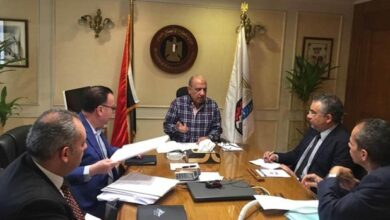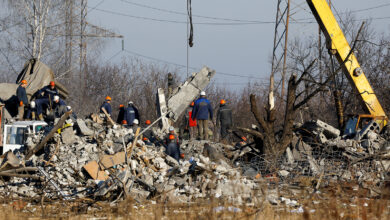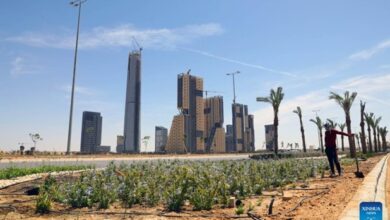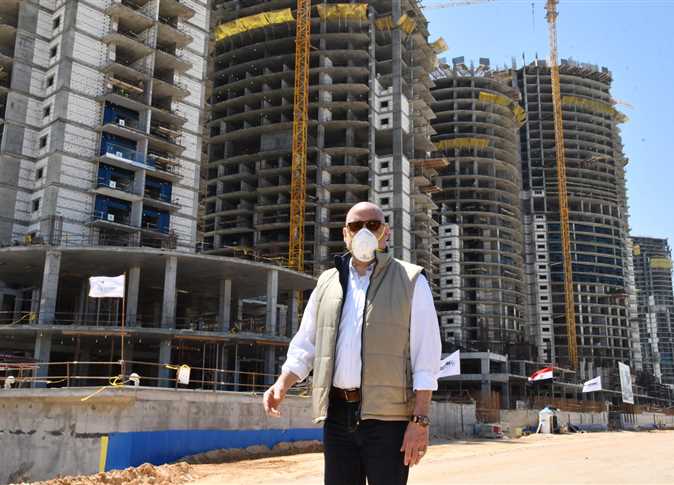Wednesday’s papers showcase a stark contrast in priorities: in state-run Al-Ahram, a "democratic alliance document" signed by an 18-party opposition coalition is front-page news, while privately-owned Al-Shorouk reports on the "coincidental" downfall of businessman Hussein Salem, and liberal party paper Al-Wafd focuses on the "state of hysteria" induced in high school students by an "extremely difficult" final algebra exam.
Members of the Muslim Brotherhood’s Freedom and Justice Party, as well as the Wafd, Ghad, Hadara, Karama and other political parties, convened Tuesday to announce a document proposing a set of governing principles to form the basis of a new constitution. State-owned Al-Ahram reports that, despite the fact that four of the groups have publicly called for the postponement of the elections scheduled in September, the coalition’s primary aim is to “resolve the conflict over whether priority should be given to elections or the drafting of a new constitution.”
During a press conference, the coalition clarified their shared belief that “freedom of expression, opinion, worship and the right to protest” should all be stipulated in the new constitution, asserting the government’s foremost role as the “nurturing and protection” of its citizens, according to Al-Ahram.
Al-Ahram’s front page also comes with the incendiary report that Mubarak’s chief personal secretary, Gamal Abdel Aziz, has managed to accumulate a staggering LE7 billion throughout his years of service, in addition to the shares his wife allegedly owns in over 30 companies. The companies are reported to include several textile and furniture manufacturers, as well as Ahmed Bahgat’s Dreamland empire.
Housing projects for low-income families are the main topic on state-run Al-Akhbar’s front page, with a report detailing Prime Minister Essam Sharaf's announcement that top priority will be given to ensuring the availability of residential units for underprivileged citizens. During Tuesday’s ribbon-cutting ceremony on the first stage of completed units, Sharaf outlined his government’s plan to, from now on, only construct housing units for families and young men otherwise unable to afford them, adding that “the construction of luxury residences will be taken care of by somebody else.” Located in the 6th of October area, the first stage includes the construction of 99 buildings comprised of 2500 63-square-meter apartments.
An exclusive report on Al-Shorouk’s front page describes Hussein Salem’s arrest as purely “coincidental,” with the Spanish police chief of money-laundering investigations admitting to the independent daily that he “was unaware of Salem’s presence on Spanish territory.” Jose Louis Oliviera explained that it was only after international reports of the businessman’s assets and properties came in that the Spanish police decide to visit Salem’s two villas. Salem, who now faces charges of money laundering, bribery, corruption and international fraud, was reportedly attempting to escape when authorities arrived at his home in the town of Mallorca.
The truth of Mubarak’s medical condition is still elusive, with Health Ministry officials, as well as the director of the hospital in which the former president is receiving treatment, refusing to make any sort of definitive statement regarding his health. When asked by Al-Shorouk reporters if there was any basis to rumors that Mubarak has cancer, both sources insisted they “knew nothing on the subject,” although hospital director Mohamed Fathallah did admit that Mubarak’s condition “has not changed since his admission into the hospital.”
Al-Dostour reports that administrators from the Two Saints’ Church in Alexandria, as well as Joseph Malak, director of the Egyptian Center for Studies and Human Rights, have requested the Supreme Council of the Armed Forces to question former Interior Minister Habib al-Adly on the bombings that killed several of the church’s patrons in January. The group accuses Adly of “neglectful conduct and failing to ensure the protection of Copts and their churches from terrorist attacks.”
Privately-owned daily Al-Dostour also reports on the instructions of Jama’a al-Islamiya’s Shura Council prohibiting its members from appearing on any televised news or talk show program hosted by an “inappropriately dressed” woman, which pretty much means any woman at all. Shura Council member Aasem Abdallah clarified that this was not proof of the group’s extremism, but rather, constituted an “attempt to avoid such appearances being used by others to accuse [the group] of not practicing, and fully committing to, Islamic traditions.” Abdallah also said that, unlike a truly extremist group, Jama’a al-Islamiya was not completely boycotting “brazen” anchorwomen and would agree to appear on their shows if the group ever needed to “deliver an urgent message to the people.”
Students nationwide were sent into a state of panic, Al-Wafd reports, by an algebra final exam that some have described as being impossibly difficult. According to the daily paper, “girls were weeping and many students fainted” in several governorates, including Sharqiya, Qena, Damietta and Daqahlia. Those students who didn’t lose their consciousness complained to Al-Wafd that the exam was loaded with “indirect questions and inappropriately long problems, given the time restrictions.”
Egypt's papers:
Al-Ahram: Daily, state-run, largest distribution in Egypt
Al-Akhbar: Daily, state-run, second to Al-Ahram in institutional size
Al-Gomhurriya: Daily, state-run
Rose al-Youssef: Daily, state-run
Al-Dostour: Daily, privately owned
Al-Shorouk: Daily, privately owned
Al-Wafd: Daily, published by the liberal Wafd Party
Al-Arabi: Weekly, published by the Arab Nasserist party
Youm7: Weekly, privately owned




